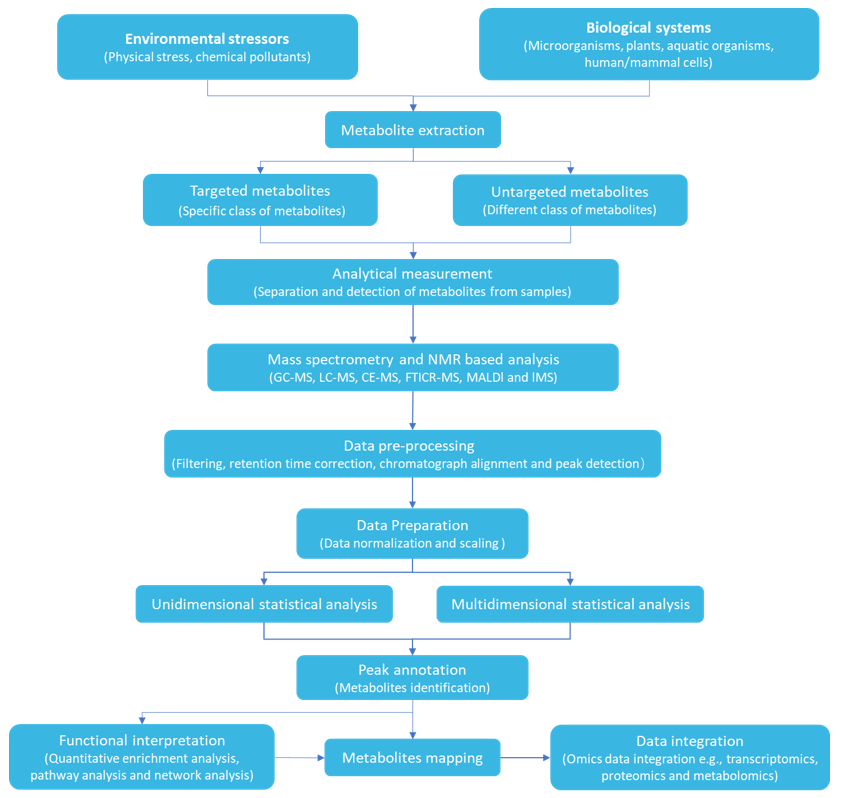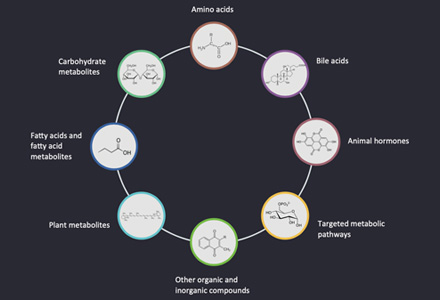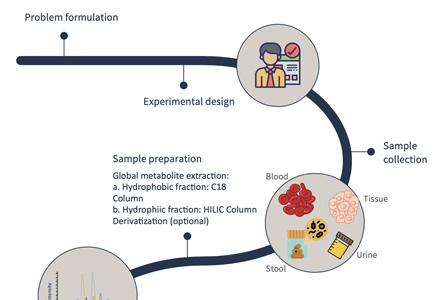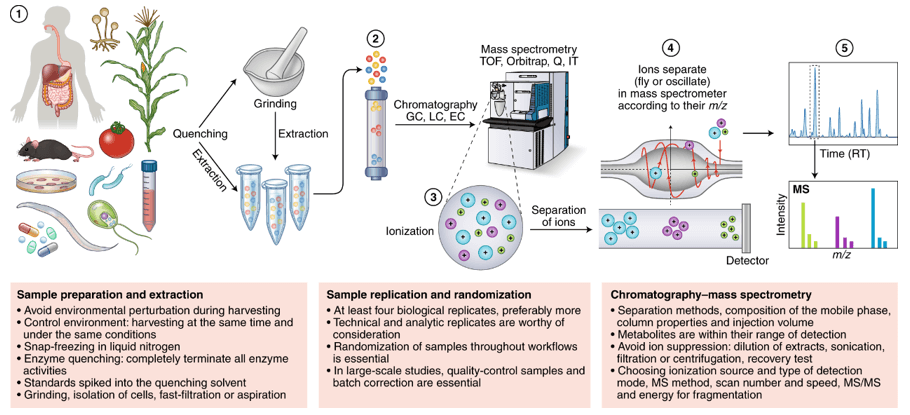The main task of environmental toxicology is to study the possible biological effects of environmental pollutants on the organism, the mechanism of action and the indicators of early damage detection. Metabolomics studies the endogenous metabolites of an organism as a whole and their variation with endogenous and exogenous factors. Changes in metabolites can sensitively indicate and confirm the toxic effects of foreign interferents at the tissue and organ levels, the accumulation of a specific metabolite may mark a defect in a pathway or the activation of a signaling response, and the dynamic changes in metabolites can serve as markers of toxic damage.
When a toxicant interacts with cells or tissues, it causes changes in the ratio and concentration of endogenous substances in key metabolic processes in the organism and is reflected by changes in the composition of body fluids. Hundreds of compounds indicative of different metabolic pathways are detected in the spectrum of biological fluids, and these metabolic-level biological information can well characterize the toxic pathways and toxic mechanisms of action of environmental factors.
Creative Proteomics provides metabolomics solutions for environmental toxicology studies, which can systematically and comprehensively reveal the toxic effects and mechanisms of endogenous and exogenous factors acting on the organism by examining the dynamic change patterns of endogenous metabolites in body fluids or tissues after the organism is stimulated and combining with bioinformatic statistical methods.






